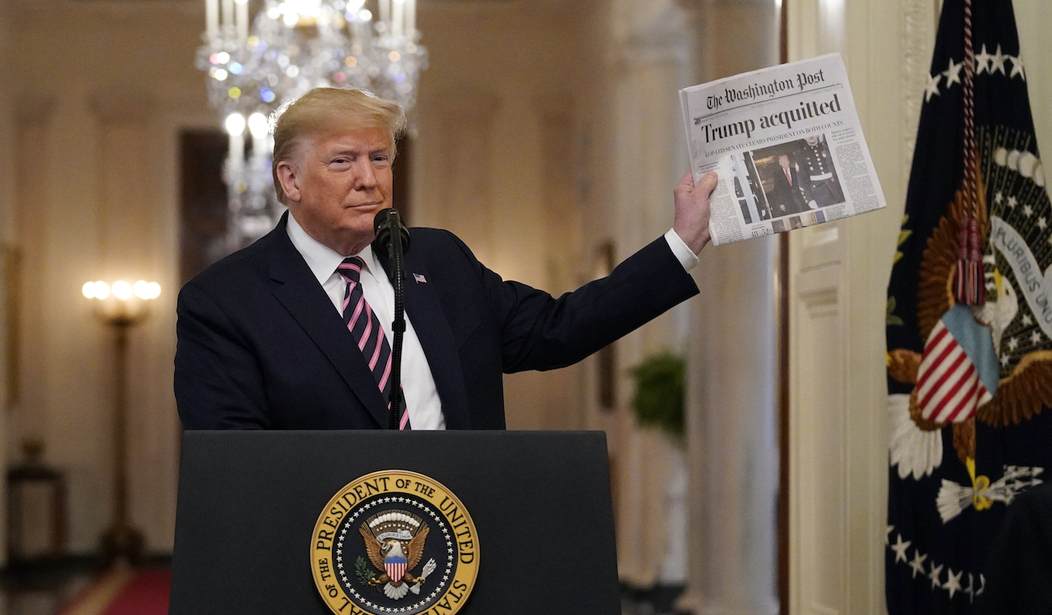Are we watching a great political party commit suicide?
For more than a year, Democratic candidates, up to 26 of them at one point, have been crisscrossing Iowa's 99 counties, seeking votes in Iowa's precinct caucuses.
They were duly held on Monday night. But the Iowa Democratic Party did not release any results until Tuesday, and they were only partial results -- a software glitch, we're told. But what does that say about the party's competence and judgment? Why not just use pencil and paper and adding machines with tape?
That would be too easy. Iowa's Democratic caucuses, established in 1972 to boost dovish candidates, had a complex system of regrouping supporters of candidates with less than 15% and reporting not votes but state convention delegate equivalents.
Bernie Sanders supporters protested four years ago when the Iowa party announced Hillary Clinton had beaten him by a tiny number of delegate equivalents, even though more caucusgoers may have actually backed him. This year, the party agreed to provide three versions of the results including the number of attendees for each candidate. So far, it's produced nothing.
The entrance poll of first choices of those entering the caucuses showed Bernie Sanders and Pete Buttigieg leading with 23%, followed by Joe Biden with 17%, Elizabeth Warren with 16% and Amy Klobuchar with 13%.
Those numbers should be considered approximate and subject to error, but nonetheless, the Buttigieg camp claimed victory; the Sanders campaign released partial results showing him ahead; and the Biden campaign noted that there were plenty of contests to come.
Recommended
Such results must look dreadful to national Democratic Party professionals. They doubt that a 78-year-old socialist who had a heart attack last October would be a strong nominee. They doubt that a 38-year-old former small-city mayor with zero appeal to black voters can stop him.
Sanders is poised to win big in New Hampshire Feb. 11, and he could easily beat a flagging Biden in Nevada on Feb. 22. Nor does South Carolina on Feb. 29 look like a sure win for Biden, who in a Jan. 26-29 Post and Courier poll led Sanders by only a five-point margin. At this point, Biden is getting only 30% of black votes, supposedly his particular constituency.
With no official result until Thursday and arguably suspicious results over the last few days, Warren and Klobuchar did not exit the race. This ensures a crowded field in which Sanders, like Donald Trump in the early 2016 Republican primaries, could win with pluralities in one state after another. After all, he did get 43% of primary votes against Hillary Clinton in 2016.
One possibility, looking forward to the Super Tuesday and other big state primaries in March, is a race between Bernie Sanders and Michael Bloomberg, who wisely skipped Iowa and New Hampshire and has been spending hundreds of millions on big state TV. Is either candidate ideally positioned to beat President Trump?
Maybe no Democrat is. Trump's RealClearPolitics job approval reached an all-time high of 46% last week, and a new Gallup poll has it at 49%. Moreover, that poll shows more voters with positive feelings toward the Republican Party than the Democratic Party, a contrast with many past results.
These possibly strategic upticks surely owe something to the way the Democrats bobbled impeachment. The one-sided House proceedings moved more people in the United States to oppose impeachment. The monthlong delay in sending the articles over to the Senate showed indecision and ineffectiveness. And the final vote Wednesday proved it was all a pointless waste of time.
In contrast, people in the U.S. see conditions in the nation improving in the Trump years. Gallup's Social Series poll shows people's satisfaction with the economy at 68%, up 22% from January 2017; satisfaction with security from terrorism up 18% from 2017; with military preparedness up 15%; and with the state of race relations up 14%.
There's plenty of material here for an updated version of former President Ronald Reagan's 1984 "Morning in America" ad, which, over gauzy, feel-good video, highlighted one improved statistic after another, with only a brief shot of the president himself.
What do the Democrats have to offer in return? Criticism of the killing of Iran's terrorist chief. Tales of economic woe at a time of record-low unemployment and what Trump can reasonably call a "blue-collar boom."
Six months ago, Democrats were savoring the humiliating defeat of Trump. Today, thanks in part to blunders from Iowa to impeachment, they fear that he, like his three predecessors, may be catching favorable winds and sailing out of the political doldrums toward reelection.
Michael Barone is a senior political analyst for the Washington Examiner, resident fellow at the American Enterprise Institute and longtime co-author of The Almanac of American Politics.

























Join the conversation as a VIP Member